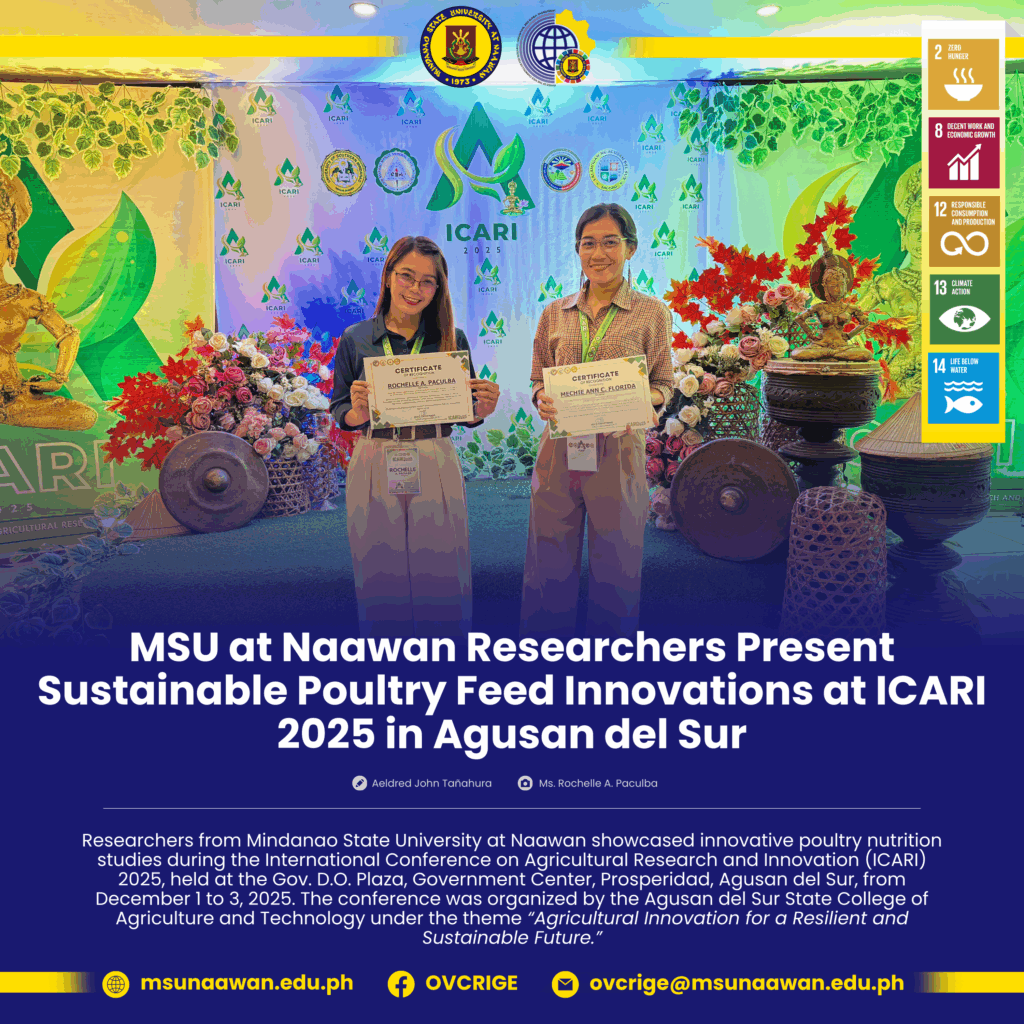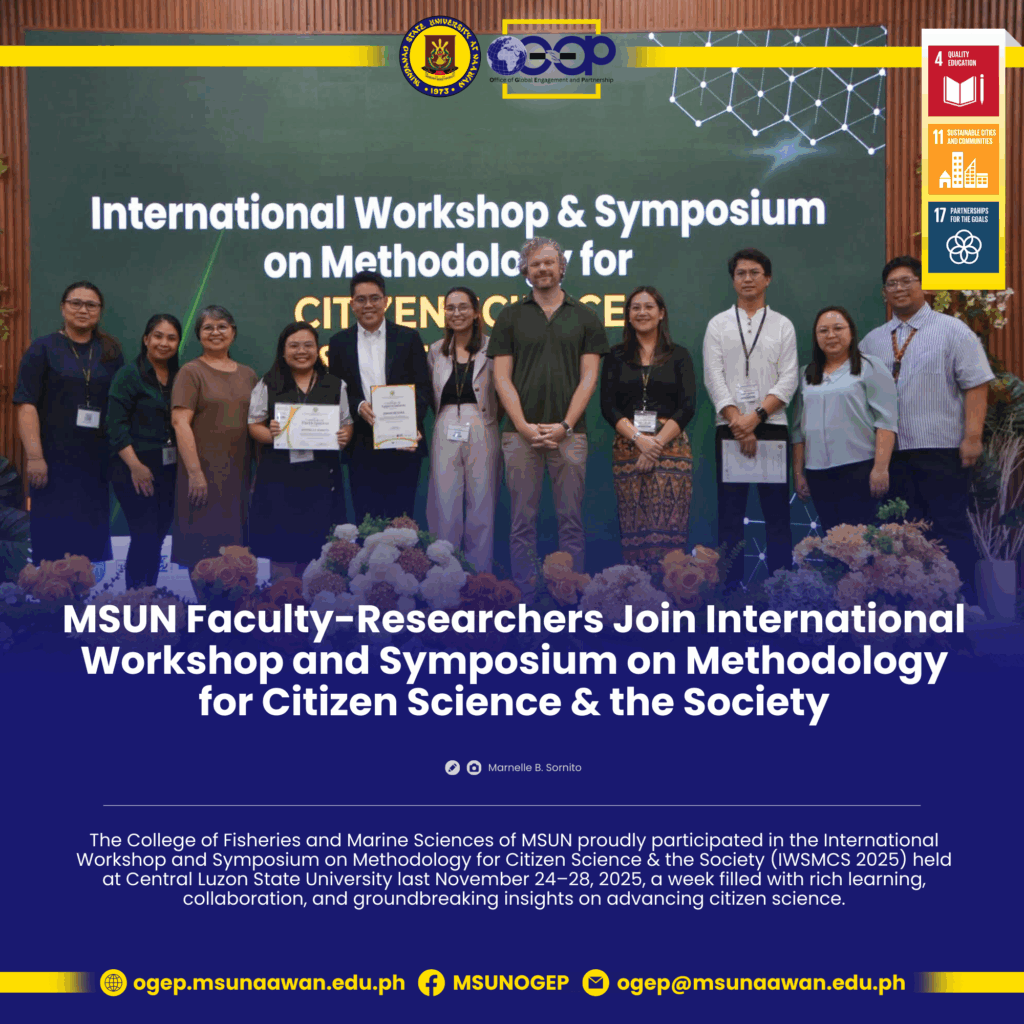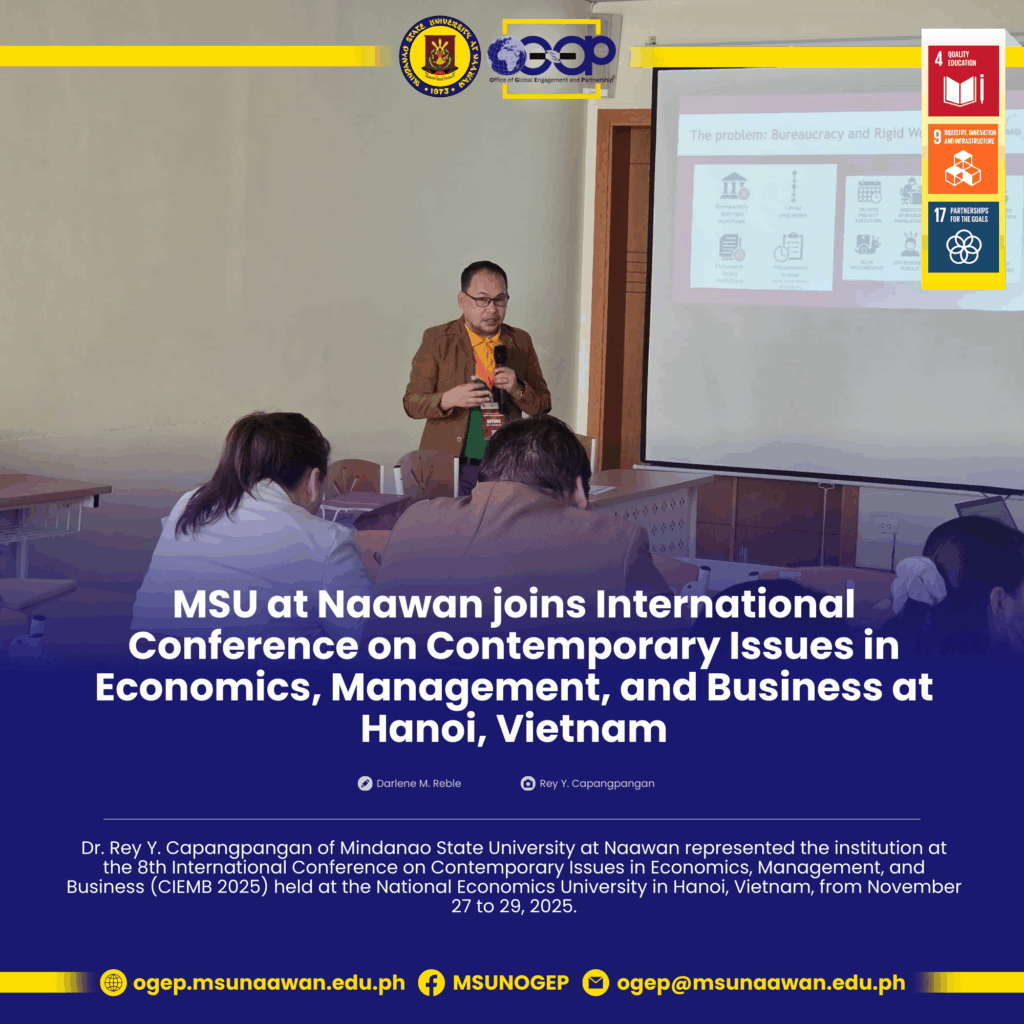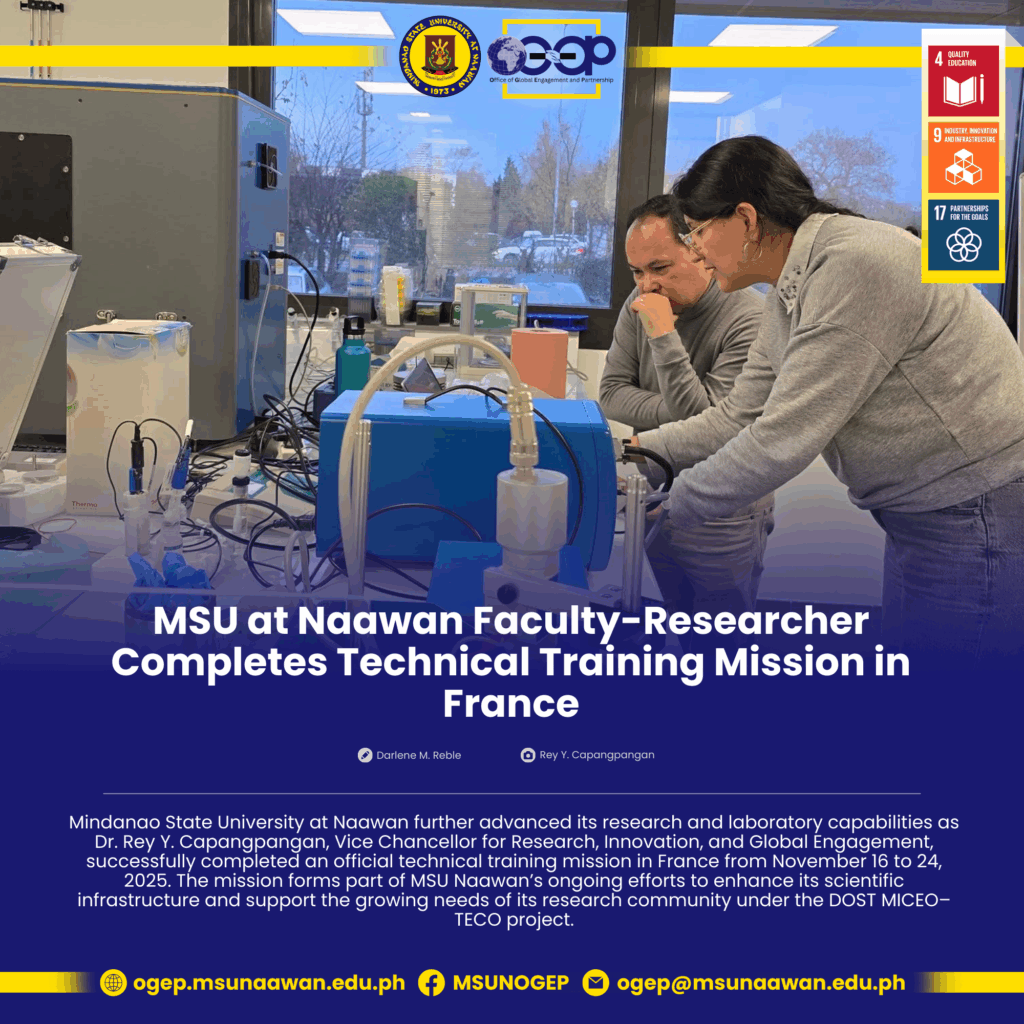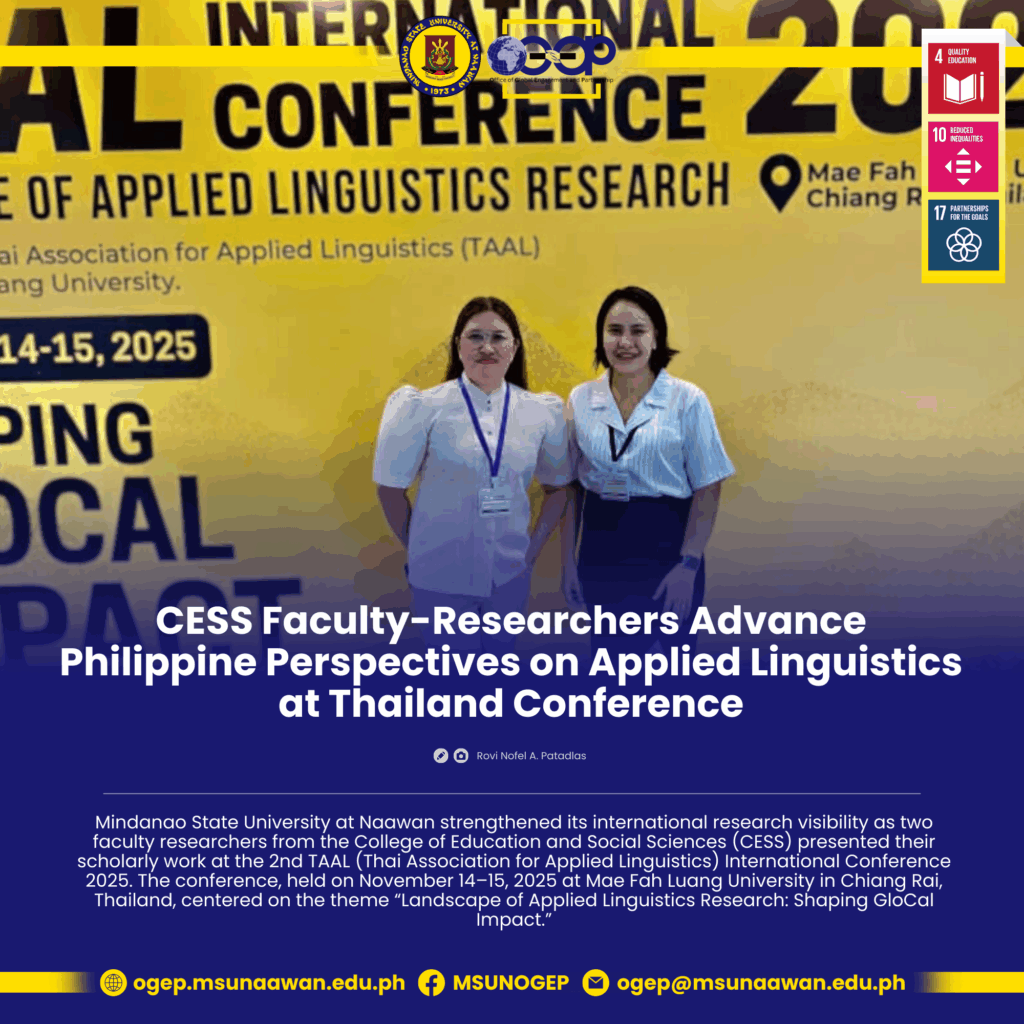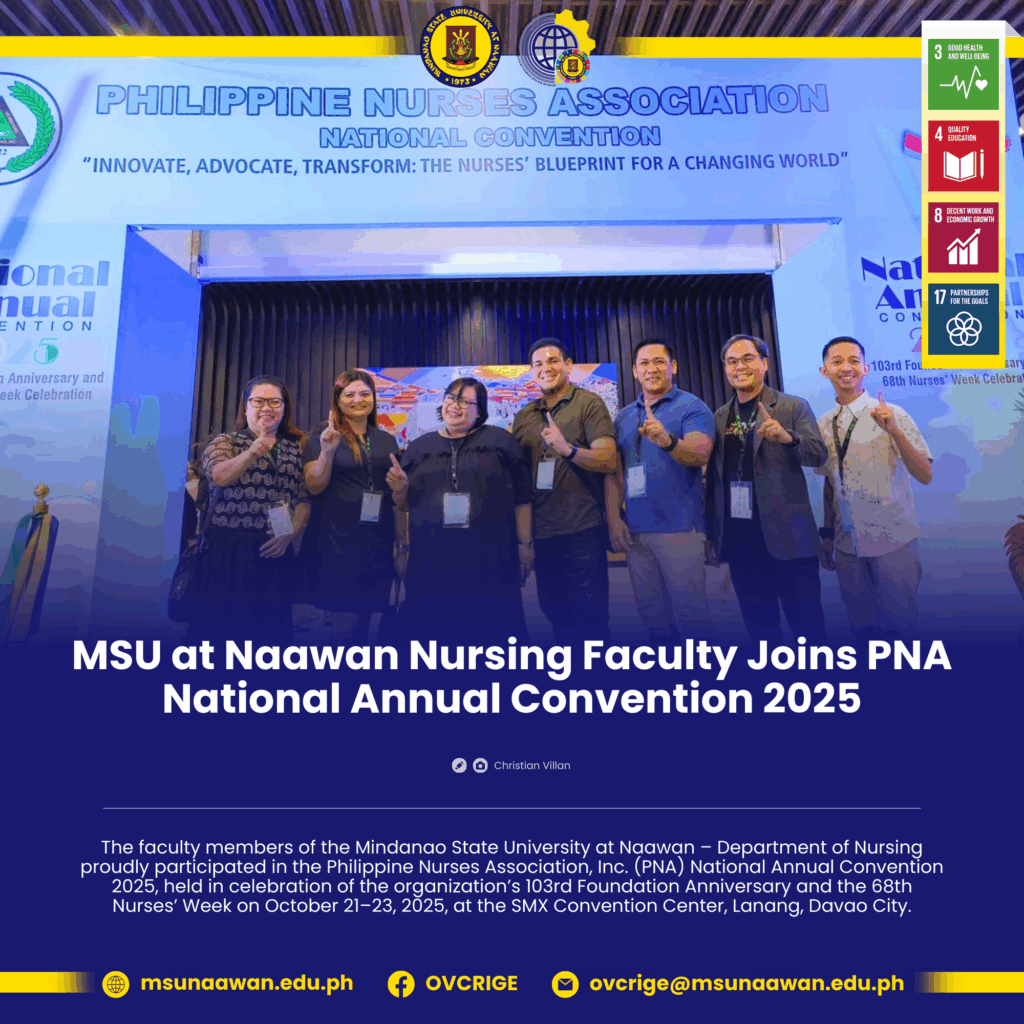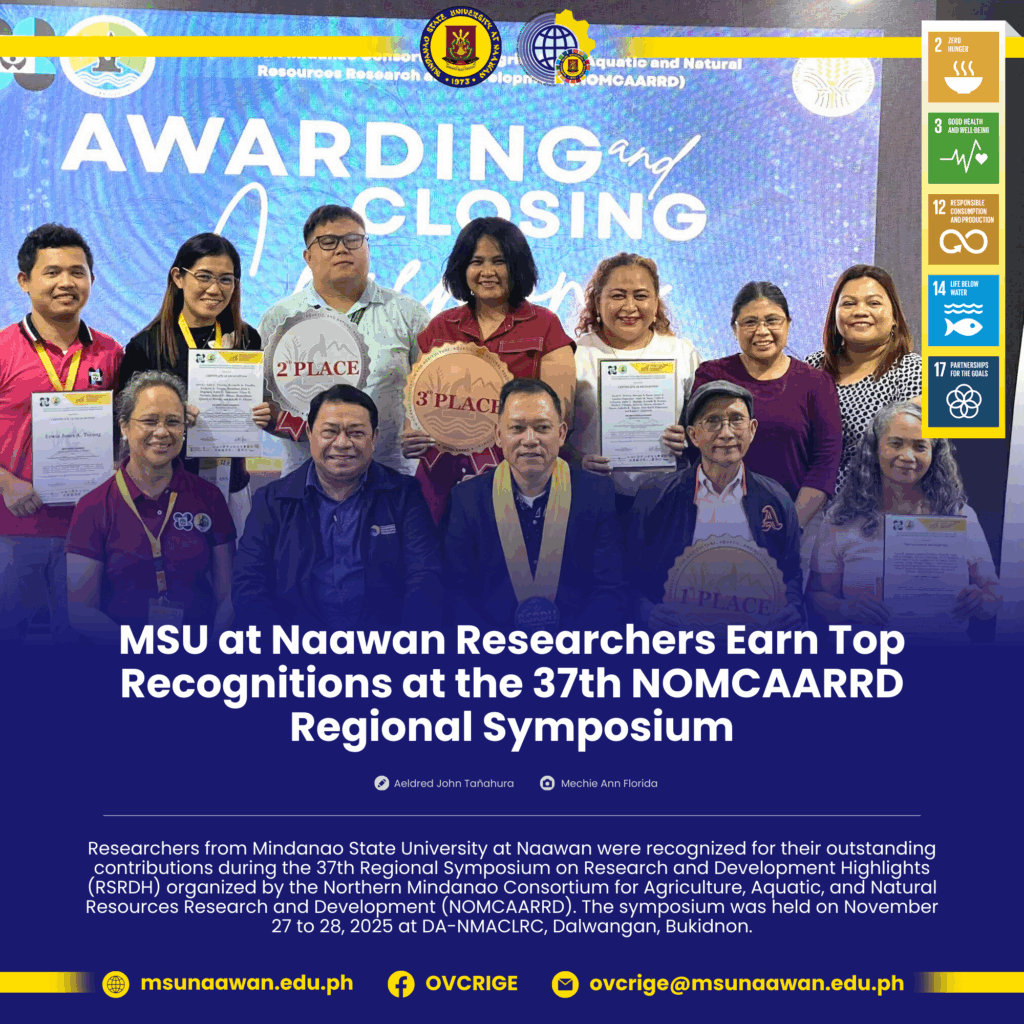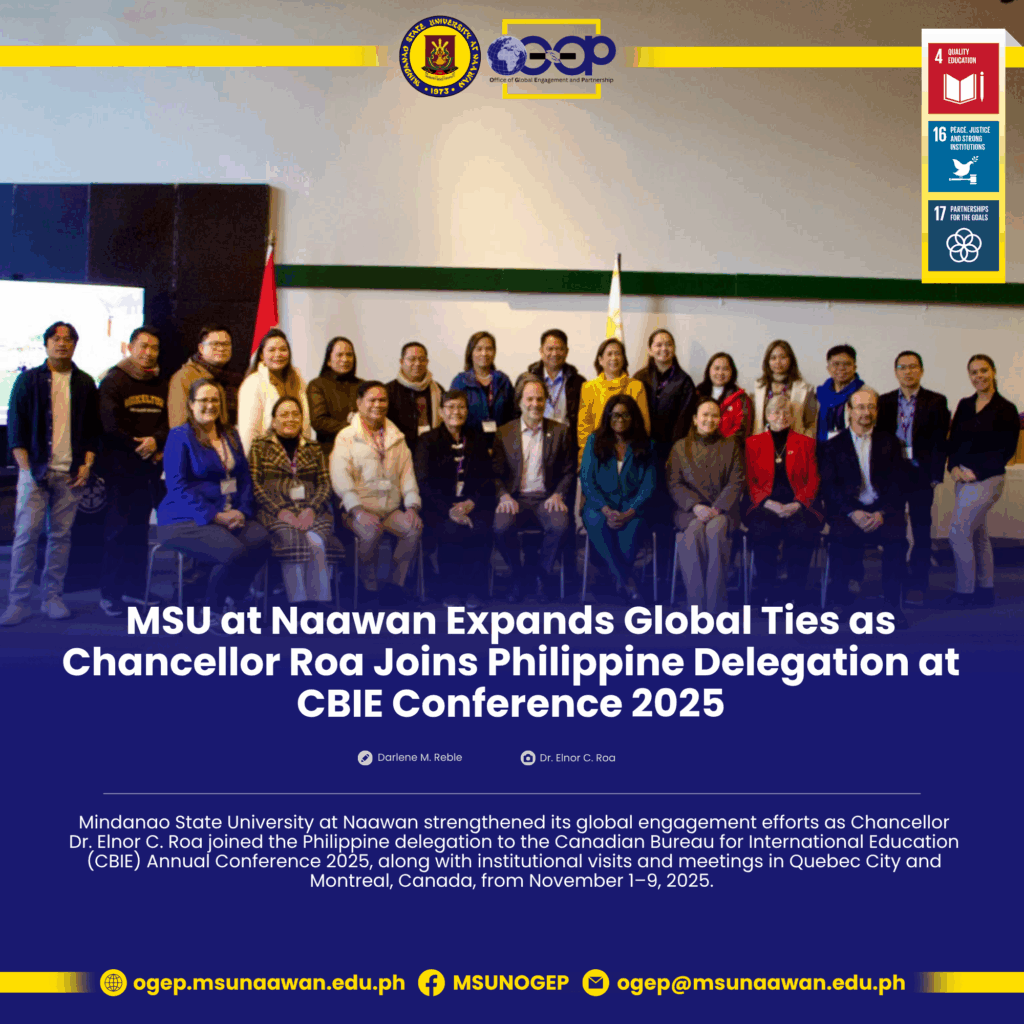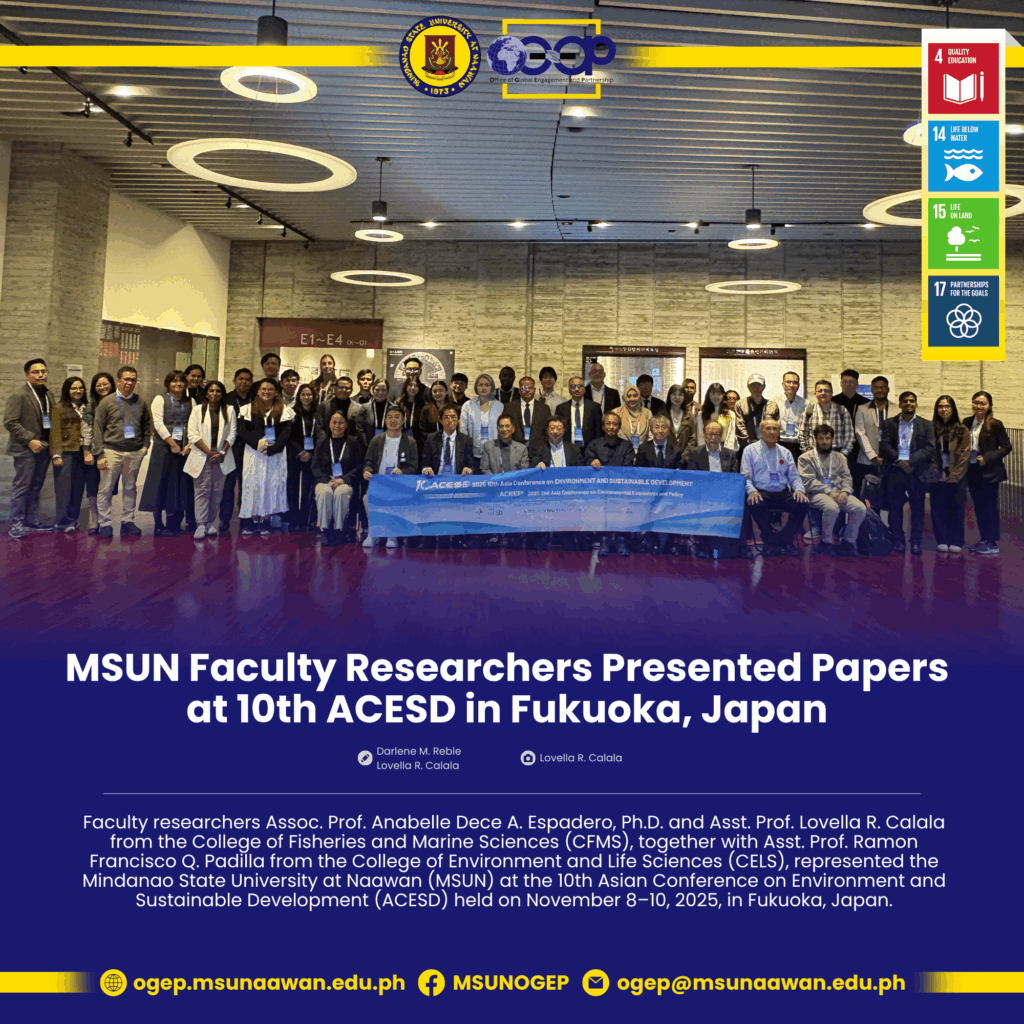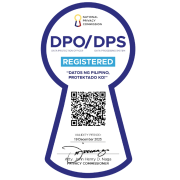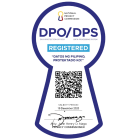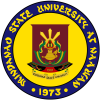MSU at Naawan Researchers Present Sustainable Poultry Feed Innovations at ICARI 2025 in Agusan del Sur
Researchers from Mindanao State University at Naawan showcased innovative poultry nutrition studies during the International Conference on Agricultural Research and Innovation (ICARI) 2025, held at the Gov. D.O. Plaza, Government Center, Prosperidad, Agusan del Sur, from December 1 to 3, 2025. The conference was organized by the Agusan del Sur State College of Agriculture and Technology under the theme “Agricultural Innovation for a Resilient and Sustainable Future.” The event gathered agricultural researchers, academicians, extension workers, and industry stakeholders from various institutions to exchange research findings that support sustainable and resilient food production systems. Despite the challenges brought about by recent earthquakes in the region, ICARI 2025 successfully provided a venue for knowledge sharing and collaboration in the pursuit of agricultural innovation. Assoc. Professor Mechie Ann C. Florida presented her study titled Pest to Feed: Utilization of the Invasive Mussel (Mytella strigata Hanley) as Protein Feed in Broiler Chicken (Gallus gallus domesticus L.), which explored the potential of converting invasive mussels into an alternative and sustainable protein source for poultry feeds. Meanwhile, Ms. Rochelle A. Paculba, MSc., presented her research entitled Dietary Supplementation of Fermented Water Lettuce (Pistia stratiotes L.) Leaf Meal on the Growth Performance of Broiler Chickens (Gallus gallus domesticus L.) and its Cost Benefits, which highlighted the effects of fermented aquatic plants on broiler performance and production economics. Their presentations contributed to discussions on waste resource utilization, feed innovation, and cost-efficient poultry production. Both researchers also actively participated in networking sessions and collaborative exchanges with fellow delegates, opening opportunities for future research partnerships. The participation of MSU at Naawan in ICARI 2025 reflects the university’s strong commitment to advancing high-impact agricultural research, promoting sustainable technologies, and strengthening its linkages with partner institutions in support of a resilient and sustainable agriculture sector.

